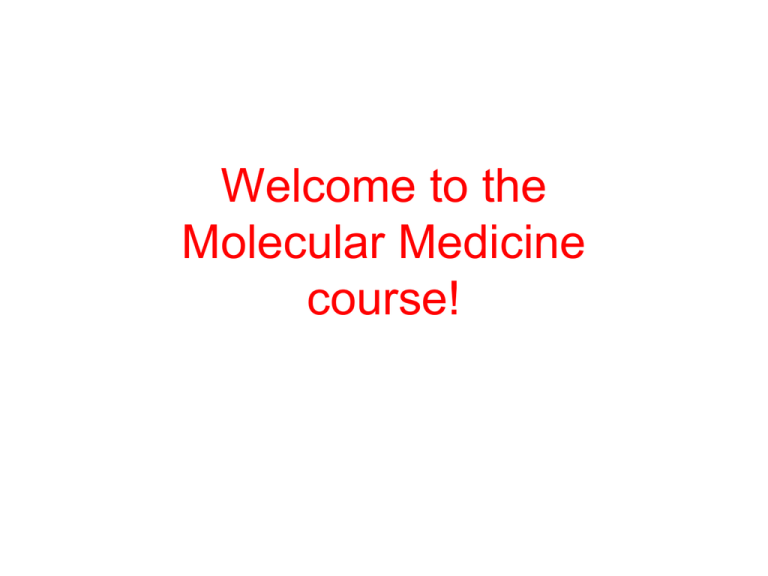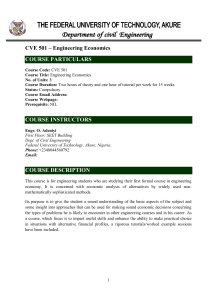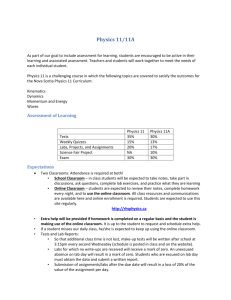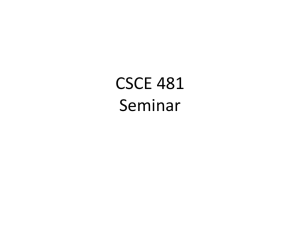feedforward assignments Research application whole - Ping-Pong
advertisement

Welcome to the Molecular Medicine course! Registration • • • • • • • • • • • • General information Over-arching goals Roll call Course contents Information about KS library Coffee Course evaluation HT 2012 Study design (research application) Seminar assignments Teacher exchange Final examination Molecular Medicine - from bed to bench Course leader: Rachel Fisher 08-517 732 45 rachel.fisher@ki.se Deputy course leader: Ewa Ehrenborg 08-517 761 91 ewa.ehrenborg@ki.se Teaching assistant: Louisa Cheung 08-517 732 21 louisa.cheung@ki.se Department of Medicine, Center for Molecular Medicine, Karolinska University Hospital, L8:02 Course administrator: Sofia Asp (Laila Leidersten) 073 744 19 21 sofia.asp@ki.se Course office: Department of Medicine, Unit for Internal Medicine, Karolinska University Hospital, A3:02 Office hours daily 8.00am - 3.00pm Course office (marked in yellow) D1Lifts Up to floor 2 Nanna Svartz A3:02 Lifts KS main entrance Over-arching goals • To integrate previously gained knowledge • To stimulate team work • To analyse, evaluate and interpret raw data • To design a study and write a research application • To provide “real life” experience Roll call Course set up • • • • • • • Lectures, usually 9am – 3pm (check venue!) Labs/demonstrations/work shops Group work (+ preparation time) Seminar assignments (+ preparation time) Revision Final written examination: 13th January Presentation of group work (research application) at end of course Course contents (15 hp/ECTS) Specific areas • Circulation, ischemia, metabolic syndrome, diabetes • Respiration, asthma, allergy • Endocrinology • Gastroenterology • Pathology • Clinical immunology / Clinical chemistry Assignments etc. • Molecular biology lab • Research application • Seminar assignments • Workshops • Revision Course literature • Text books from previous courses: physiology, pharmacology, biochemistry, molecular genetics, immunology • Hand outs • Lecture summary points (from lecturers) • Selected articles Does everyone want a paper copy of the hand outs? Information about KS library Marie Källberg Seminar assignments Lab “Methods in Molecular Biology” Lectures, demos, labs, exam Workshops Research plan Labs and Demonstrations • Lab: “Methods in Molecular Biology – Theory and Practice” 12/11 (introduction) 26-28/11, 3-5/12 (lab) 9-11/12 (analysis + statistics) 17/12 (discussion + review) • Blood grouping lab (14-15/11) • Lung/allergy demonstration (19/11) not compulsory • Angiography demonstration (22/11) Labs • You must bring your own lab coat Compulsory to have a lab coat to perform the labs • If you have lost the lab coat you were given when you started the Biomedicine Programme, you can buy a new one (380kr): http://www.g-ess.se/ Tel: 08-449 85 70 (Stuvsta + Bromma) • Some labs and demonstrations will be performed in active research labs/clinics - show consideration for those who work there Course evaluation HT 2012 • • • • • • Good Research application Lab “Methods in Molecular Biology” Seminar assignment Work shops Examination relevant Course leaders/administration Mixed • Clinical emphasis • Lung/asthma/allergy demonstration • Lecturers Bad • Lack of a course text book/absent summary points • Work load too light New for HT 2013 • • • • • • Two seminar assignments Teacher exchange New workshop Revision of lab “Methods in Molecular Biology” Modification of research application Lung/asthma/allergy demonstration voluntary Workshops • 3 workshops: Atherosclerosis Endocrinology Clinical immunology (7/11) (2/12) (16/12) • Questions/discussion topics handed out in connection with relevant lectures • Self-study/discussion + review with teacher • Preparation for the exam Evaluation of the course • We rely on your feedback to improve the course • Please give constructive feedback • Evaluation forms (online) • Cinema ticket voucher if all evaluation forms completed + submitted! Course councils • With class representatives Thursday 21st November, 12 noon • With whole class Wednesday 15th January, 1 pm Who are the class representatives? Forms of feedback reviewing Research progress with application students Peer-to-peer to edit and redraft Methods in mol biol Informing about feedback Course councils and evaluations Round-table feedback Methods in mol biol feedback on seminar assignment & exam Pre-submission guidance and feedback Research application Workshops feedforward assignments Research application whole-class feedback Workshops Course language • All literature in English • Lectures in English • All assignments must be examined in English (written + verbal) Research application • Group assignment • Choose a specific issue to focus on • Design a research project • Write a research application • Present the project orally • Answer questions • Team work • Realistic exercise Research application: groups and topics • Groups 1-6 each split in 2 • 12 “subgroups” of 3-4 people • Each subgroup allocated a broad topic • Detailed project chosen by the subgroup • Discussions with and feed back from topic “mentor” and from Ewa E Research application – broad topics • MicroRNA and vascular disease • Immunological aspects of gastric disease • Aneurysm • Regenerative cardiology • Thyroid diseases • Allergy • Coagulation • Diabetes and co-morbidities • Inflammatory lung diseases • Vascular remodelling • Cell death in metabolism • Inflammation in cardiovascular disease 2 topics/group, 3-4 people/research application Research application topic lottery Research application: new for HT2013 • Include writing a “popular science” project summary • Early discussions/feed back - start with groups with topics relating to lectures at start of course → timetable issues regarding groups Groups will be announced today/tomorrow Seminar assignments • Two assignments • Handed out at in advance • Group or individual work / individual assessment • Research based aspects, requires independent work • Obtain appropriate information - lectures, discussions, web, articles ..… • Time scheduled to prepare answers • Examination in seminar format, in groups: No. 1 27th/29th November No. 2 5th/6th December • Grading = pass / fail Teacher exchange • Terhi Heino – University of Turku, Finland • Seminar Assignment 2 Examination • Final examination: Monday 13th January Grades A-F Questions testing knowledge + understanding Grading of the examination • F, Fx, E, D, C, B, A • Goal-based assessment • Evaluating the level of knowledge obtained not the amount of knowledge • F, Fx = fail • E = basic pass: identify, describe, list • C, D = pass with merit: compare, explain connections, analyse, apply • B, A = pass with distinction: theorise, hypothesise, reflect One relevant aspect Prestructural Unistructural F Fx Several relevant Integrated into independent aspects a structure Multistructural E Relational C, D Generalized to new domain Extended abstract B, A To pass the course … • The student must obtain a grade of at least E for the written examination (5 hp) • The student must also pass – the seminar assignments (3 hp) – the research application (3 hp) – all compulsory labs and demonstrations (4 hp) Replacement assignments • When compulsory parts of the course are missed, there are replacement exercises • If written, these must be handed in by the last day of the course (17 January 2013) • Next opportunity for submission = next course (HT2014) Use the web page! We will communicate with you via the web page Molecular Medicine: from bed to bench • Important clinical contact • Translational research • Cross-disciplinary • “From bench to bed and back again”



